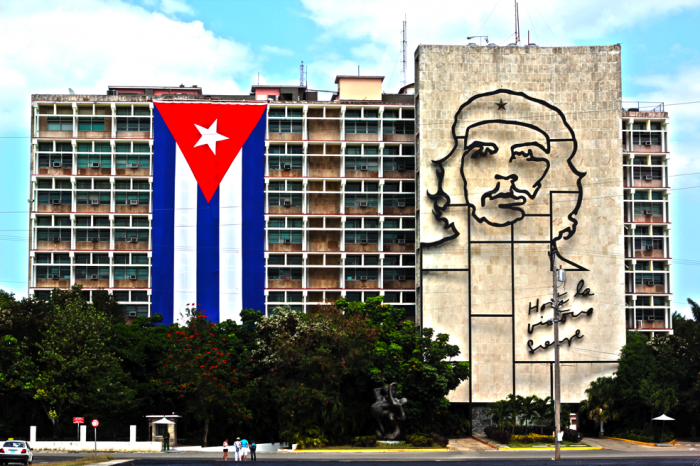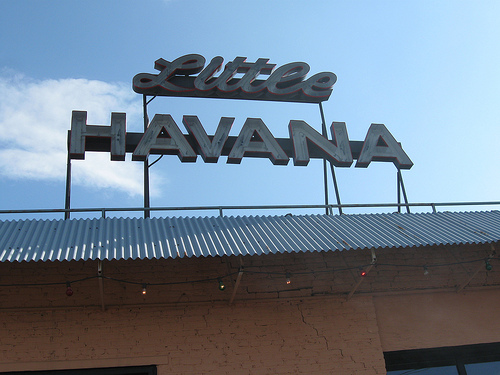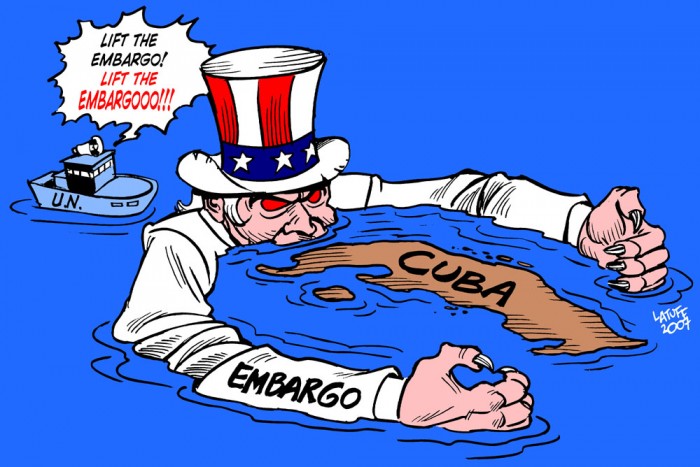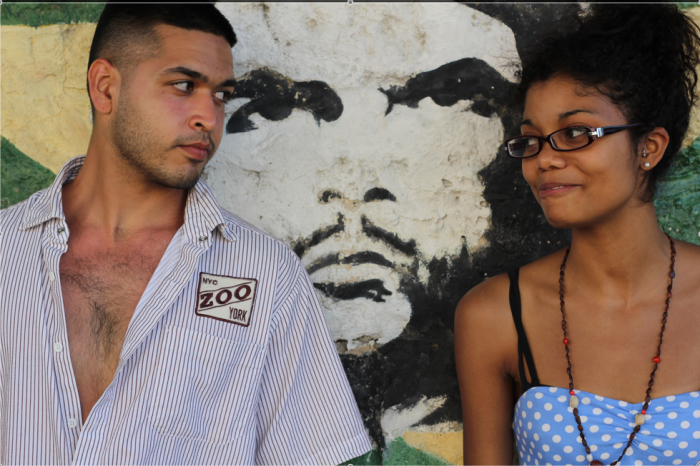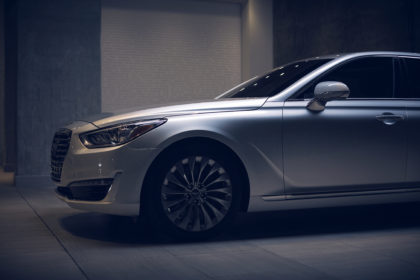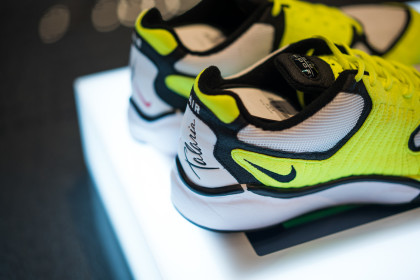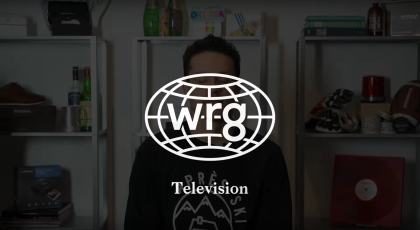
Cuba: A Hostage to Fortune
Like snowflakes, sunsets are never identical. Many and various are the skyward configurations of hues, light rays and clouds suspended in the atmosphere. It was when I was floating a dozen feet off the shores of Cuba, not far from where trained guerrillas under President JFK’s orders illegally invaded and were beaten in 1961, that I realized the end of each day is unexampled and inimitable.
Cuba—Remember the Gore/Bush election in Florida in 2000 and that huge debacle from which George W. Bush emerged President? It carries an important lesson about what American elections and the perennial pariah that is Cuba represent for every American administration since Dec 31, 1958.
Cuban exiles control the presidential vote in Florida and any would-be President of the United States can’t become such without winning that state. (Bill Clinton did not win Florida in 1992 but since there were three candidates in that election it is an exception to the rule. This didn’t stop Clinton from taking a $75,000 speaking fee from the Cuban-American lobby however. More on this below)
Florida is THE swing state — the purplest of purple states— in US elections and it is always uppermost in a Presidential candidate’s mind. The crux of the thing is that for inexplicable reasons, you can’t become president without winning Florida.
Florida is where vote tallies in 2000 refused to distinguish a clear winner, and the Supreme Court ruled in Bush’s favour, it is said, because of a fistful of the 833,000 Cuban-Americans that congregate in little Havana (America has a total Cuban population of 1,250,000).
Of these barely 1 million refugees, located in Dade county, a small gang of fat dandies self-styled as the Cuban-American National Foundation claim to be the moral authority of the Cuban-Americans. Led as they were by Jorge Mas Canosa, the Cuban lobby in America has only helped constrict further the US embargo on Cuba laughingly titled the Cuban Democracy Act.
This Cuban lobby employs the same tactics that they attack Castro for implementing as they silence both moderate and left-wing Cuban voices in America in order to prolong the woe on Cubans stuck on the island. A 1994 Human Rights Watch Report makes it clear these are the types of Cubans that the US government rolls with. Is the US trying to install democracy or take it away?
In a single year, the embargo on Cuba robs nearly 70% of Cuba’s purchasing power and precludes an estimated $37 billion in trade and investment. The embargo induces a dependency on the Castro regime and does not erase it. El Bloqueo (the embargo) is obscenely counter-productive for the parties chiefly concerned.
The US foreign policy towards Cuba has been nothing short of sadism. No, not the love-bites and spanking sort of safe-word sex romp, but the bad kind, the psychologically disturbing kind. It is perversely strangling Cuba to the benefit of a small bunch of big-waistband Floridian Cubans whose lost casinos flicker in their memories like the twinkle and glisten of their gold chains.
Ironically, the one thing on which the majority of Cuban exiles do agree is the total revocation of the embargo and the expansion of cultural exchange, trade, travel, mail and telephone improvements. Cuban exiles pine for the sights and sounds of Havana nights which the US government denies them access to — no trade and no travel to Cuba for US citizens.
Havana is the historic site where Michael Corleone met Hyman Roth in The Godfather Part II. The two were galvanizing foreign investments in Cuba when the guerrillas, Castro, Guevara, et al, stormed the capital city. The gangsters mistook the armed insurrection for a fiesta considering that it was New Years Eve in 1958 when that went down. Mafioso elements had turned Cuba into an American casino state and therein is the reason for the revolution led by the Castro brothers and the little respected Afro-Cuban, Juan Almeida Bosque.
To get a sense of how much of a racist banana republic Cuba was, the former dictator, Fulgencio Batista, was barred from American owned spots because he was too black. The supreme leader of Cuba denied access by a power much greater than he.
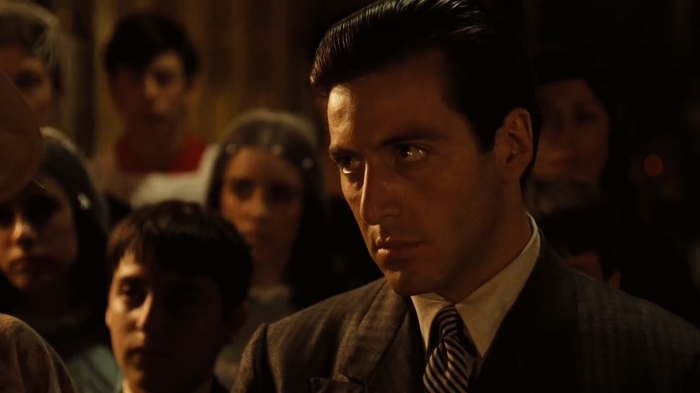
A simple thought experiment is useful to show how irrational the US is being. US multinational corporations are the most efficient way for the US to coaxingly procure what it wants internationally. When US tanks are rolling down foreign streets, resentment festers in minds of the locals. But when Starbucks opens a branch at a foreign fork in the road, people enter with resumes and leave with a Café Mistos. To wit: wouldn’t the US interests be best achieved by supporting free trade with the island?
Well, yes, if the US knew what it wanted, but it clearly doesn’t, and for that Cuba libre is a hope about as empty as Cuban rice silos.
Market Maoism persists in China and the US shovels money into their pockets, Cuba’s biggest export is doctors and the US tells them their kind isn’t welcome in their shops. Is the US somehow racist? Childish? Both?
Cuba fought its way as part of a process of independence and anti-colonialism and it shows at every bend in the Cuban calle (street). Che Guevara’s face is literally everywhere and the man who fought to liberate the tattered rabble from capitalism is now the hottest commodity — the irony still raises the corners of my mouth.
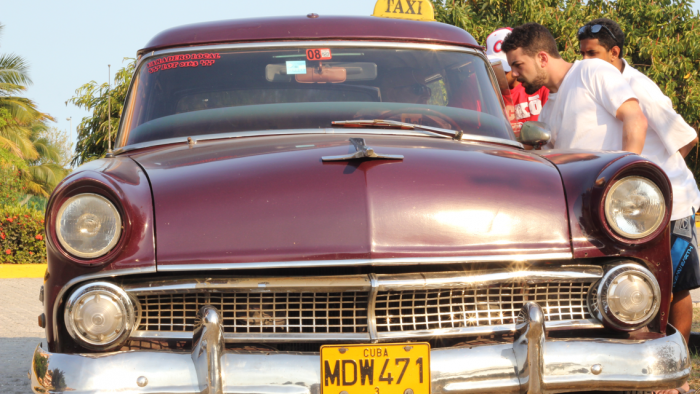
South of the Florida Keys, 90 miles give or take, lies Cuba, isolated and resolute. Looking for a political experience among the gold teeth and ‘58 Chevys, I was dismayed. The vibrancy and revolutionary gestations of that country have become a zombified image of its former self. When a Marxist is jailed for the mere writing of a class analysis of Cuba; the Revolucion eats its children, so to speak. Cuba Libre remains as empty a platitude as alternative press newsstands in Cuba.
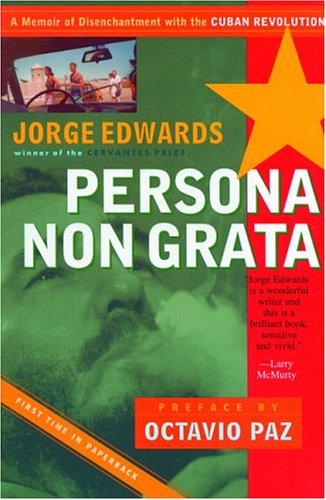
(this is a fantastic book on the tragic reversal of the Cuban revolution)
Che Guevara prided himself on inducing mass literacy especially amongst the rural downtrodden, but the Communist Party denies Cuban the use of their literary faculties by controlling what they can and cannot read.
If education is the act of elevating the mind to react principally against fallacious information, wouldn’t the heroically educated masses of Cuba do quite well by themselves in rejecting the propaganda that the Communist Party prevents them from seeing?
Censorship as such is the admission by the government that it doesn’t trust its constituents — perhaps best to dissolve the people and for the government elect a new one (I stole this from Bertolt Brecht).
The artists, the athletes, the musicians had forsook the island. The ruling party is nostalgic for a lost seriousness and the days when Cuba was treated like a bigger place than it actually is. Those that defend the Communist Party’s policies as an imperative forget Castro not only defended the 1968 invasion of Czechoslavkia by the Soviet Union but also confusedly banned Soviet newspapers for their supposed ‘American values’.
Currently, Cuba is undergoing 250 much welcomed modernization reforms, like ATM/Debit machines and creating a real estate market. If these reforms will revert Cuba back to a banana republic or if they will resurrect the principles of the revolution we cannot yet know.
The advances in medicine, however, the cultural productions, and the revolutionary history pre-dating Raul Castro (Jose Marti and Antonio Maceo to name two) of Cuba can be regained, even if that one sublime sunset cannot.
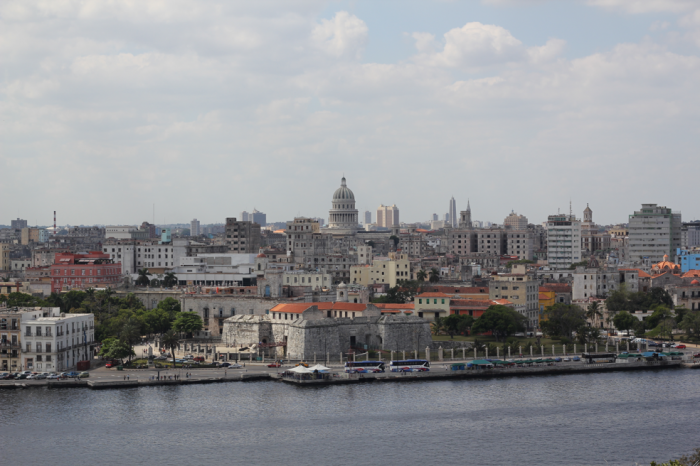
Like snowflakes, sunsets are never identical. Many and various are the skyward configurations of hues, light rays and clouds suspended in the atmosphere. It was when I was floating a dozen feet off the shores of Cuba, not far from where trained guerrillas under President JFK’s orders illegally invaded and were beaten in 1961, that I realized the end of each day is unexampled and inimitable.
Cuba—Remember the Gore/Bush election in Florida in 2000 and that huge debacle from which George W. Bush emerged President? It carries an important lesson about what American elections and the perennial pariah that is Cuba represent for every American administration since Dec 31, 1958.
Cuban exiles control the presidential vote in Florida and any would-be President of the United States can’t become such without winning that state. (Bill Clinton did not win Florida in 1992 but since there were three candidates in that election it is an exception to the rule. This didn't stop Clinton from taking a $75,000 speaking fee from the Cuban-American lobby however. More on this below)
Florida is THE swing state — the purplest of purple states— in US elections and it is always uppermost in a Presidential candidate’s mind. The crux of the thing is that for inexplicable reasons, you can’t become president without winning Florida.
Florida is where vote tallies in 2000 refused to distinguish a clear winner, and the Supreme Court ruled in Bush’s favour, it is said, because of a fistful of the 833,000 Cuban-Americans that congregate in little Havana (America has a total Cuban population of 1,250,000).
Of these barely 1 million refugees, located in Dade county, a small gang of fat dandies self-styled as the Cuban-American National Foundation claim to be the moral authority of the Cuban-Americans. Led as they were by Jorge Mas Canosa, the Cuban lobby in America has only helped constrict further the US embargo on Cuba laughingly titled the Cuban Democracy Act.
This Cuban lobby employs the same tactics that they attack Castro for implementing as they silence both moderate and left-wing Cuban voices in America in order to prolong the woe on Cubans stuck on the island. A 1994 Human Rights Watch Report makes it clear these are the types of Cubans that the US government rolls with. Is the US trying to install democracy or take it away?
In a single year, the embargo on Cuba robs nearly 70% of Cuba’s purchasing power and precludes an estimated $37 billion in trade and investment. The embargo induces a dependency on the Castro regime and does not erase it. El Bloqueo (the embargo) is obscenely counter-productive for the parties chiefly concerned.
The US foreign policy towards Cuba has been nothing short of sadism. No, not the love-bites and spanking sort of safe-word sex romp, but the bad kind, the psychologically disturbing kind. It is perversely strangling Cuba to the benefit of a small bunch of big-waistband Floridian Cubans whose lost casinos flicker in their memories like the twinkle and glisten of their gold chains.
Ironically, the one thing on which the majority of Cuban exiles do agree is the total revocation of the embargo and the expansion of cultural exchange, trade, travel, mail and telephone improvements. Cuban exiles pine for the sights and sounds of Havana nights which the US government denies them access to — no trade and no travel to Cuba for US citizens.
Havana is the historic site where Michael Corleone met Hyman Roth in The Godfather Part II. The two were galvanizing foreign investments in Cuba when the guerrillas, Castro, Guevara, et al, stormed the capital city. The gangsters mistook the armed insurrection for a fiesta considering that it was New Years Eve in 1958 when that went down. Mafioso elements had turned Cuba into an American casino state and therein is the reason for the revolution led by the Castro brothers and the little respected Afro-Cuban, Juan Almeida Bosque.
To get a sense of how much of a racist banana republic Cuba was, the former dictator, Fulgencio Batista, was barred from American owned spots because he was too black. The supreme leader of Cuba denied access by a power much greater than he.

A simple thought experiment is useful to show how irrational the US is being. US multinational corporations are the most efficient way for the US to coaxingly procure what it wants internationally. When US tanks are rolling down foreign streets, resentment festers in minds of the locals. But when Starbucks opens a branch at a foreign fork in the road, people enter with resumes and leave with a Café Mistos. To wit: wouldn’t the US interests be best achieved by supporting free trade with the island?
Well, yes, if the US knew what it wanted, but it clearly doesn’t, and for that Cuba libre is a hope about as empty as Cuban rice silos.
Market Maoism persists in China and the US shovels money into their pockets, Cuba’s biggest export is doctors and the US tells them their kind isn't welcome in their shops. Is the US somehow racist? Childish? Both?
Cuba fought its way as part of a process of independence and anti-colonialism and it shows at every bend in the Cuban calle (street). Che Guevara’s face is literally everywhere and the man who fought to liberate the tattered rabble from capitalism is now the hottest commodity — the irony still raises the corners of my mouth.

South of the Florida Keys, 90 miles give or take, lies Cuba, isolated and resolute. Looking for a political experience among the gold teeth and ‘58 Chevys, I was dismayed. The vibrancy and revolutionary gestations of that country have become a zombified image of its former self. When a Marxist is jailed for the mere writing of a class analysis of Cuba; the Revolucion eats its children, so to speak. Cuba Libre remains as empty a platitude as alternative press newsstands in Cuba.

(this is a fantastic book on the tragic reversal of the Cuban revolution)
Che Guevara prided himself on inducing mass literacy especially amongst the rural downtrodden, but the Communist Party denies Cuban the use of their literary faculties by controlling what they can and cannot read.
If education is the act of elevating the mind to react principally against fallacious information, wouldn’t the heroically educated masses of Cuba do quite well by themselves in rejecting the propaganda that the Communist Party prevents them from seeing?
Censorship as such is the admission by the government that it doesn’t trust its constituents — perhaps best to dissolve the people and for the government elect a new one (I stole this from Bertolt Brecht).
The artists, the athletes, the musicians had forsook the island. The ruling party is nostalgic for a lost seriousness and the days when Cuba was treated like a bigger place than it actually is. Those that defend the Communist Party’s policies as an imperative forget Castro not only defended the 1968 invasion of Czechoslavkia by the Soviet Union but also confusedly banned Soviet newspapers for their supposed ‘American values’.
Currently, Cuba is undergoing 250 much welcomed modernization reforms, like ATM/Debit machines and creating a real estate market. If these reforms will revert Cuba back to a banana republic or if they will resurrect the principles of the revolution we cannot yet know.
The advances in medicine, however, the cultural productions, and the revolutionary history pre-dating Raul Castro (Jose Marti and Antonio Maceo to name two) of Cuba can be regained, even if that one sublime sunset cannot.


